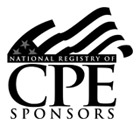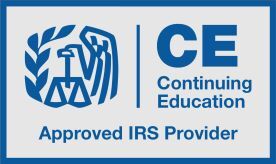

View Details/Register
View Details/Register
View Details/Register
View Details/Register
View Details/Register
View Details/Register
View Details/Register
View Details/Register
View Details/Register
View Details/Register



CPA - medium firm
CPA - large firm
Enrolled Agent
This webinar will explore underutilized elections, deductions, and strategic planning opportunities for estate income tax returns. Participants will examine various key topics, such as the choice of fiscal year analysis, the IRC 645 Election for qualified revocable trusts, and the nuances of IRC 663(b), IRC 643(e)(3) and IRC 691(c) elections.
Attendees will analyze how to effectively utilize expenses on estate tax returns versus estate income tax returns. The session will also explore the often-missed complexities of income tax and portability planning. Join us for an overview and discussion on these essential tools, which can empower practitioners to better serve their clients in navigating estate income tax returns.
-
Identify various tax planning elections available for estate income tax returns
-
Recognize the importance of discussing the portability election with executors
-
Describe the deduction for estate taxes paid on income in respect of a decedent (IRC 691(c))
-
Evaluate whether certain deductions should be applied to the estate tax return or the estate income tax return

Martin Shenkman
Shenkman Law
Dual Practitioner, Financial Planner
[email protected]
(201) 845-8400
Martin M. Shenkman, CPA, MBA, PFS, AEP (distinguished), JD, is an attorney in private practice in Fort Lee, New Jersey, and New York City, New York, with Shenkman Law. His practice focuses on estate and tax planning as well as planning for closely-held businesses and estate administration. Throughout his career, Mr. Shenkman received awards and acknowledgments from the New Jersey Bar Association, Worth Magazine, CPA Magazine, the American Cancer Society, and the AICPA. Mr. Shenkman holds a Bachelor of Science from the Wharton School at the University of Pennsylvania, an MBA from the University of Michigan, a law degree from Fordham University School of Law. He is admitted to the bar in New York, New Jersey, and Washington D.C.

Christine G. Pronek is a Principal at WilkinGuttenplan. Christine specializes in estate planning and estate, trust and gift tax compliance. A Certified Public Accountant with over twenty-five years in public accounting and three years with the Internal Revenue Service, she has experience in all areas of taxation.
Christine is a member of the American Institute of Certified Public Accountants and New Jersey Society of Certified Public Accountants (NJSCPA). An accounting graduate of Quinnipiac University, Christine holds a Masters of Science in Taxation degree from Fairleigh Dickinson University.
- To receive CPE credit, you must register for the webinar before it starts.
- CPE is available to all eligible participants within 24 hours of each webinar.
- To receive CPE for multiple attendees, at least one person must sign up for the webinar. The post-webinar email contains a link to instructions for the proctor letter. Alternatively, you may log in to your account following the webinar and click on the MY ACCOUNT button to find a link to instructions. For paid courses, payment needs to be made for each attendee before credit will be issued.

NASBA Approved
CPAacademy.org (Sponsor Id#: 111889) is registered with the National Association of State Boards of Accountancy (NASBA) as a sponsor of continuing professional education on the National Registry of CPE Sponsors. State boards of accountancy have final authority on the acceptance of individual courses for CPE credit. Complaints regarding registered sponsors may be submitted to the National Registry of CPE Sponsors through its website: www.nasbaregistry.org.
CPAacademy.org 1685 S. Colorado Blvd, Suite #205, Denver, CO 80222

EA Approved
CPAacademy.org (Sponsor Id#: HURS9) has entered into an agreement with the Internal Revenue Service, to meet the requirements of 31 Code of Federal Regulations, section 10.6(g), covering maintenance of attendance records, retention of program outlines, qualifications of instructors, and length of class hours. This agreement does not constitute an endorsement by the IRS as to the quality of the program or its contribution to the professional competence of the enrolled individual. Credit earned by attendees with a PTIN will be reported directly to the IRS as required of all providers. To ensure your CPE hours are reported, update your profile in My Account to include your PTIN number. Please note: IRS CE is only mandatory for EAs and ERPAs. For all other tax return preparers, CE is voluntary.
CPAacademy.org 1685 S. Colorado Blvd, Suite #205, Denver, CO 80222




